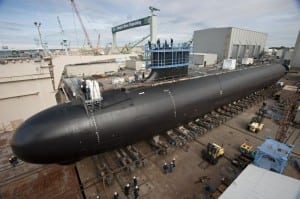
Secretary of the Navy Carlos Del Toro recently sent congressional appropriations leaders a letter detailing the downsides for the Department of the Navy in a potential six-month Continuing Resolution (CR) being considered on Capitol Hill, including schedule delays for submarines and aircraft carrier refueling overhauls. In the letter, dated Sept. 12 and publicly released Monday, Del Toro reiterated some points previously made in a similar recent letter sent by Secretary of Defense Lloyd Austin that the most consequential impacts of…

 By
By 









